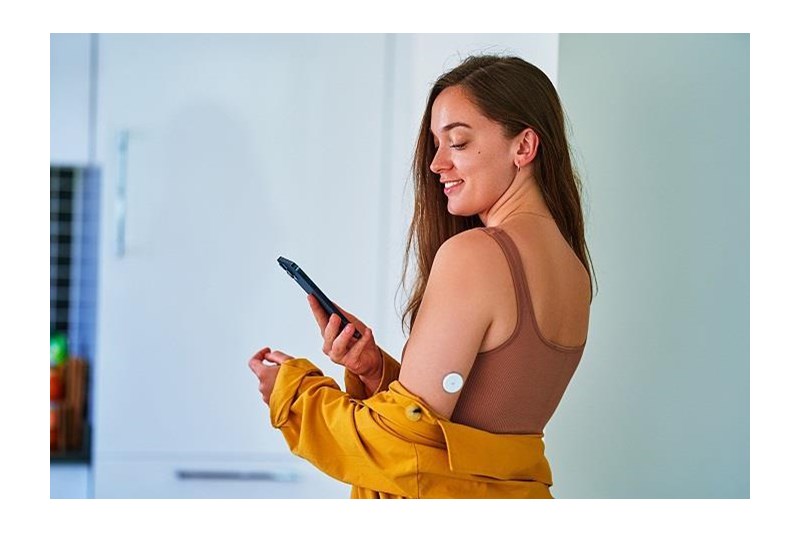Should people without diabetes monitor their blood sugar?
Published: 18/03/2024
Healthcare experts have warned blood sugar monitors for people without diabetes are unnecessary and could “translate into eating disorders.”
Personalised nutrition and diet plans have been gaining attention on social media. Companies such as Zoe are taking a “holistic approach” to help their customers understand how specific foods or meals impact their body.
One way that Zoe does this is through blood sugar monitors. Users wear the sensor continuously for two weeks and log their food intake to measure their blood sugar levels after eating. Customers also complete at-home gut health and blood fat tests.
The company says that “even two healthy people can have wildly different responses to the same food”. So, it suggests that customers use their results to guide their food decisions.
Zoe’s chief scientist, Sarah Berry, told BBC News that the company uses “decades” of nutritional research and has done “studies on links between blood sugar and health.”
Partha Kar, a professor and national speciality advisor for diabetes with NHS England, has warned that there is a lack of evidence on what “the swings in blood sugar mean” for people without diabetes.
Nicola Guess, a diabetes researcher at the University of Oxford, told BBC News that most of the evidence “linking high, and highly varied, blood sugar to health problems is based on glucose levels only seen in people with diabetes or prediabetes.” She explained that high blood sugar levels are a symptom of diabetes, not a direct cause.
A spokesperson for Zoe commented, “Zoe is scientifically rigorous in its approach, unrivalled by others in the industry in terms of clinical trials, robust research and a dedicated team of scientists and nutrition professionals looking to improve health through useful, evidence-based advice."
Partha added that the monitors could have an adverse effect and potentially “translate into eating disorders.”
The eating disorder charity Beat said, “People with eating disorders often fixate on numbers... as part of their illness, so we'd never recommend that anybody affected uses glucose monitors".
Sarah added that Zoe does take "the wellbeing of our members very seriously," so it attempts to “screen out people with a history of eating disorders”. To support them with food anxiety, all customers also have access to nutrition coaches who can refer them if they become concerned about a problem.
Published research by Zoe on the data it has collected has attempted to find patterns in areas including food choices, hunger and blood test results. However, “it can't show which aspects are actually causing changes to health and which are coincidences.”
The product is “very holistic”, said Sarah. It “doesn't involve just microbiome testing or just continuous glucose monitoring".
Nicola argues that while the elements are unproven, it is a "sciencey-sounding way of having people eat more fruit and vegetables". She says Zoe’s message is "not compelling enough" to sell a £300 product.
Author: Muireann Hannan













